Red Chile Enchilada Sauce: A Global Spice Adventure in Every Spoon!
You might think red chile enchilada sauce is just another pantry staple, but this fiery, flavor-packed sauce is a doorway to global spice traditions. From the sun-drenched kitchens of New Mexico to the bustling markets of Oaxaca, red chile enchilada sauce tells stories through its heat and depth.
Table of Contents
- Introduction
- A Brief History: The Roots of Red Chile Enchilada Sauce
- Types of Chiles Used Around the World
- 5 Essential Tips for Making Perfect Red Chile Enchilada Sauce
- Global Variations: How Different Cultures Use Red Chile Enchilada Sauce
- Food Pairings: What Goes Well with This Spicy Star?
- Health Benefits & Nutritional Value
- Storage & Shelf Life: Keep It Fresh, Keep It Fire
- Conclusion: Embrace the Heat
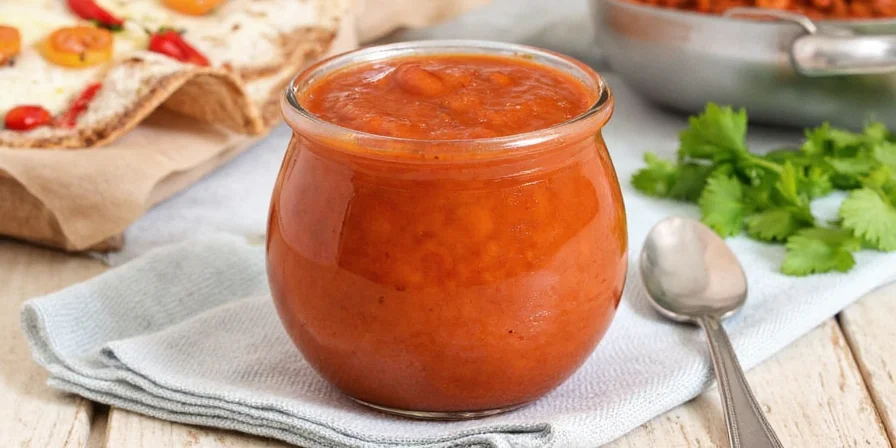
Introduction: Why You Should Care About Red Chile Enchilada Sauce
Whether you're a spicy food lover or just dipping your toes into the world of chiles, red chile enchilada sauce deserves a spot on your kitchen counter. Its versatility, flavor complexity, and cultural significance make it more than just a condiment — it’s a culinary experience.
A Brief History: The Roots of Red Chile Enchilada Sauce
The story of red chile enchilada sauce begins in Mesoamerica, where indigenous peoples cultivated chiles long before Europeans arrived. Over time, these traditional recipes blended with Spanish influences, giving birth to what we now know as modern enchilada sauce.
In New Mexico, chiles are practically a religion — from green chile cheeseburgers to Christmas-style enchiladas (a mix of red and green). But it’s the deep, smoky flavors of red chile that truly define tradition.
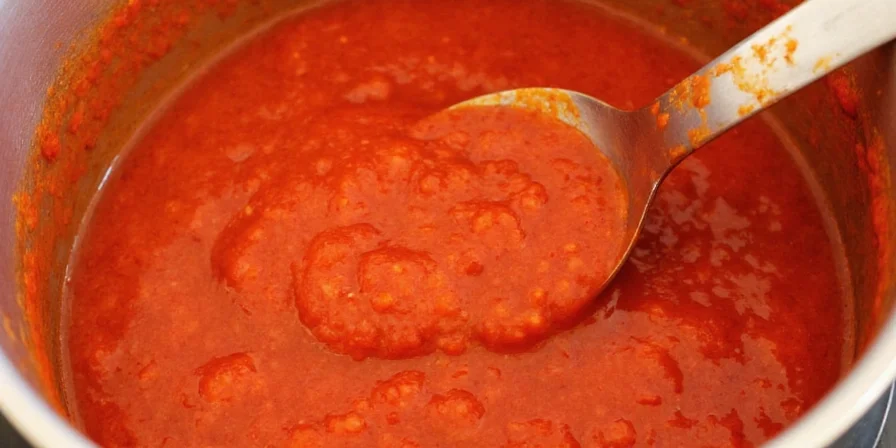
Types of Chiles Used Around the World
While classic Mexican red chile enchilada sauce uses dried ancho, pasilla, or mulato chiles, other regions have their own twists:
| Region | Chile Type | Flavor Profile | Heat Level (Scoville) |
|---|---|---|---|
| Mexico (Traditional) | Ancho / Pasilla | Smoky, sweet, earthy | 1,000–2,000 |
| New Mexico | Hatch Red | Bright, fruity, mildly smoky | 1,000–8,000 |
| Peru | Aji Amarillo | Spicy, tropical, herbal | 30,000–50,000 |
| Thailand | Thai Bird's Eye | Intense heat, grassy notes | 50,000–100,000 |
| India | |||
| Kashmiri Red | Vibrant color, mild heat, floral | 1,000 |
5 Essential Tips for Making Perfect Red Chile Enchilada Sauce
- Toast Your Chiles: Don’t skip toasting! Dry-toasting chiles before soaking enhances depth and complexity.
- Soak Smart: Soak chiles in hot water, not boiling — about 20–30 minutes until soft.
- Add Some Love: Roasted garlic, onion, and a splash of vinegar elevate the flavor profile significantly.
- Blend Until Smooth: For silky sauce, blend well and strain if desired for a restaurant-grade finish.
- Season Thoughtfully: Salt, cumin, and oregano are classics — but don’t be afraid to experiment with cinnamon or cloves for warmth.
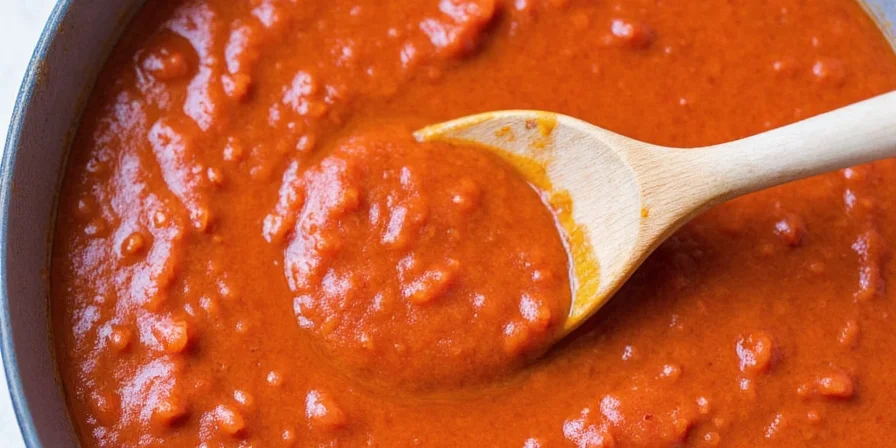
Global Variations: How Different Cultures Use Red Chile Enchilada Sauce
Red chile sauce isn’t exclusive to Mexican cuisine. Across the globe, variations appear in different forms:
- Morocco: Harissa-based sauces bring similar fire and depth to tagines and couscous.
- Korea: Gochujang blends fermented richness with spice — a cousin in flavor territory.
- Italy: Calabrian chili oil brings a refined, peppery heat to pasta dishes.
- West Africa: Shito sauce from Ghana uses chiles, spices, and sometimes smoked fish for a bold kick.
Food Pairings: What Goes Well with This Spicy Star?
Here’s how to get the most out of your red chile enchilada sauce:
- Cheese: Queso fresco, Monterey Jack, or aged Cheddar balance the heat beautifully.
- Proteins: Grilled chicken, pork, or tofu soak up the sauce like a dream.
- Vegetables: Roasted squash, zucchini, or black beans add earthiness and texture.
- Carbs: Corn tortillas, rice, or quinoa are perfect canvases.
- Drinks: Try with horchata, a cold beer, or even a citrus-forward IPA.
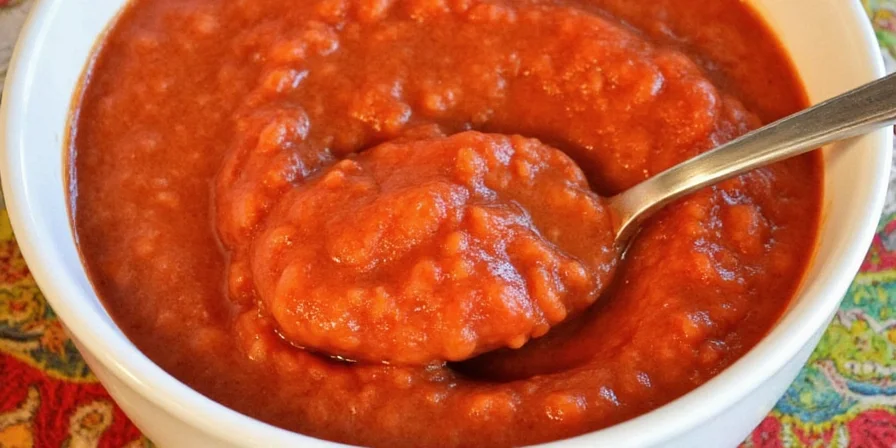
Health Benefits & Nutritional Value
Did you know that red chiles contain capsaicin — the compound responsible for both heat and health benefits? Here’s why you should feel good about spicing up your life:
- Boosts Metabolism: Capsaicin can temporarily increase metabolic rate.
- Rich in Vitamins: High in Vitamin C, beta-carotene, and antioxidants.
- Anti-Inflammatory Properties: May help reduce inflammation and joint pain.
- Heart Health: Some studies suggest capsaicin improves circulation and lowers cholesterol levels.
Storage & Shelf Life: Keep It Fresh, Keep It Fire
Want your sauce to last beyond dinner tonight? Here’s how to store it properly:
- Refrigerator: Up to one week in an airtight container.
- Freezer: Store in ice cube trays or freezer-safe bags for up to 6 months.
- Canning: If you’re feeling adventurous, pressure-canning allows for shelf stability up to a year.

Conclusion: Embrace the Heat
Red chile enchilada sauce is more than a recipe — it’s a celebration of spice, culture, and creativity. Whether you stick to the classics or go global with your twist, there’s no wrong way to enjoy this vibrant sauce. So next time you reach for a jar or decide to make your own, remember: every spoonful carries centuries of tradition and flavor waiting to ignite your taste buds.
Got questions? Let us know in the comments below — and don’t forget to share your favorite red chile creations!
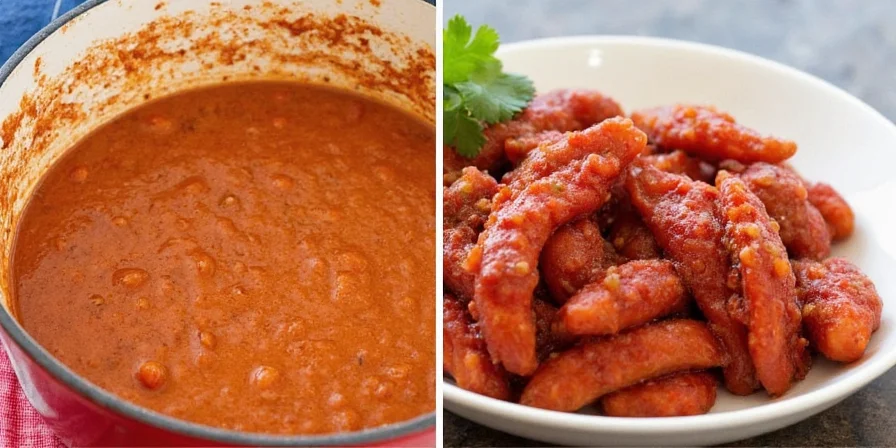
Happy cooking and hotter eating!

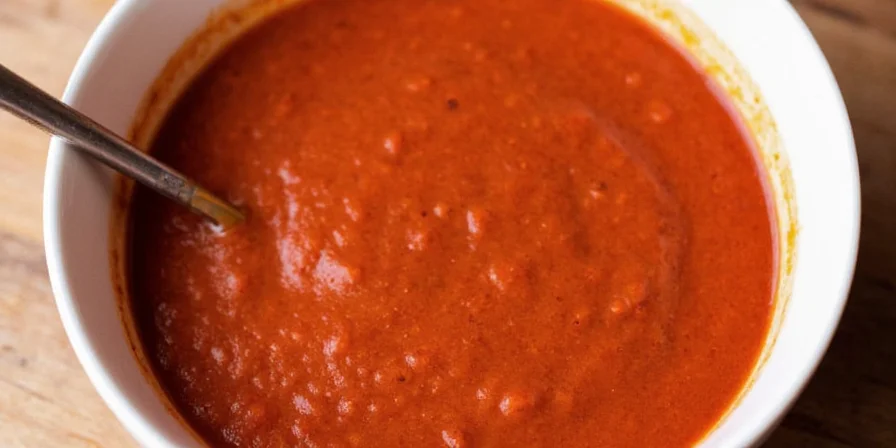









 浙公网安备
33010002000092号
浙公网安备
33010002000092号 浙B2-20120091-4
浙B2-20120091-4